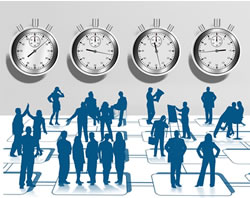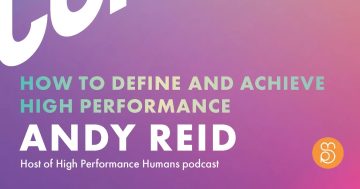Gwen Moran* says there are myths about hacking our personal performance and productivity that should be discarded.
 When it comes to becoming the best version of yourself, there’s a lot of bad advice out there.
When it comes to becoming the best version of yourself, there’s a lot of bad advice out there.
Sure, bodies and minds typically work better if they’re healthy, rested, and filled with the proper nutrients.
But some experts warn that a combination of our interest in “hacking” and quick fixes coupled with all-or-nothing thinking could actually backfire.
“I think that what’s not accurate is when people try to partition or segment an activity to what you should or shouldn’t do,” says David Findel, founder of Strategic Performance Group, a performance coaching firm.
“If you wake up at 4 am, that’s wonderful.”
“But what are you really doing?”
“Waking up at 4 am without a purpose is just as useless as waking up at noon,” he says.
Advice that promises a shortcut or a universal truth is usually bad advice, Findel adds.
Here are four lies about improving your performance and productivity that need to go.
- There’s one right way to do it
When someone (aside from your physician) prescribes a specific formula or time limit for an activity, be sceptical, says life coach and entrepreneur Kate Swoboda.
Whether it’s exercise, meditation, or other routines, don’t let all-or-nothing thinking deprive you of the benefits of doing something — even for a little while.
“Five minutes of meditation is still going to slow down different processes in the body that reduce stress,” Swoboda says.
“Probably it will have at least some effect on cortisol levels.”
“Certainly, it’s going to have an effect on heart rate.”
So, even if you don’t have the perfect cushion or a half-hour each day to devote to your meditation practice or exercise program, do what you can for now.
You’ll still get some benefit from it, she says.
- Surround yourself with positive or like-minded people
On the surface, this seems like good advice.
After all, no one wants to be surrounded by naysayers all the time.
But if you’re constantly seeking out “glass is half-full” folks and those with similar mindsets, you might be missing out on the gifts of negativity, Swoboda says.
On one hand, people with a more pessimistic style may teach you lessons about how you want to view the world.
But, more importantly, they may be able to see pitfalls and concerns that those with more rose-coloured glasses don’t readily see, she says.
She points to the red team/blue team exercises that have their origins in the military.
“You have one team coming up with ideas, and the red team’s whole gig is to come in and shoot it down so that the planning team is aware of what the critics are going to say, what the pitfalls are,” Swoboda says.
You don’t want to get in the habit of ruminating, which can have a negative impact on performance, but some conflict can up your game and force you to come up with better solutions, she says.
- There’s a ‘hack’ for that
When Jerry Colonna, CEO of executive coaching firm Reboot, hears productivity or performance advice described as a “hack”. his BS meter clicks on.
There are no shortcuts, he says.
You can’t just do one simple thing and have your life fall into place.
“What makes me concerned is when we infuse that activity with a belief system that’s all we have to do,” Colonna says.
Making changes to your life is hard work.
“Understanding what the block is, understanding what has held you back, is the first step,” he says.
“And then, repeatedly creating structures that can support you in the transformation — that’s what will make the transformation stick.”
- Trust the process
Breaking down goals into tasks and then just checking boxes has an appealing simplicity, but if you’re just going through the motions, you’re not likely to get where or what you want, Findel says.
You need context, measurement, and engagement to truly move the needle on your personal growth and effectiveness.
Just following a process isn’t enough.
He makes a comparison to following a recipe: “If you don’t sift that flour and if you knead it too much, [it’s] going to come out flat and hard.”
“It’s [about] doing it the right way,” he says.
Instead, understanding why you want to achieve something, the obstacles that are in your way, and what you’re going to do to overcome those obstacles are all factors that need to be considered with the task list, he says.
If you don’t know your goal and what it’s going to take to get there, no amount of focus on the process is going to be enough.
Then, as you’re going through the steps, be aware of what is working and revisit what isn’t.
While usually well-intentioned, the overarching myths that change can be easy or that one size can fit all when it comes to improvement or achievement is just flat-out wrong, Swoboda adds.
“We’re human. We are not the data,” she says.
“People end up being more successful when they give themselves that room.”
* Gwen Moran writes about business, money and other topics.
This article first appeared at www.fastcompany.com.











